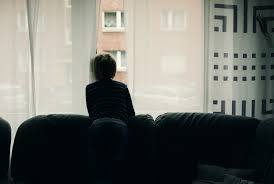Five Tips to Help You Recover From Your Worst Year, Ever
It’s the one-year anniversary of the Covid-19 pandemic. In mid-March 2020, the entire world was locked down for the first wave, and since then, the pain, loss and stress have been unimaginable. As a result, mental health everywhere is at an all-time low.
Here in Ontario, people have lost their jobs, their businesses and their homes. They’ve lost loved ones and they themselves have been sick, with many continuing to have lingering symptoms leaving them chronically unwell and stressed to the max.
Drug and alcohol abuse are at an all-time high, as people attempt to cope with the stress in dysfunctional ways. Even more concerning, spousal and child abuse are sky-rocketing as families are isolated together for months on end with frustrations mounting and tempers raging.
There are five reasons why mental health in North America is at an all-time low:
1. Social isolation: We’re used to being with a wide variety of people and either we’ve been completely alone or we’re seeing only a small handful of people. We deeply crave human contact and a richer variety of interactions.
2. Loss: We’ve given up so much in the past year, including our freedom to move around, our social, cultural and recreational activities, and for many of us, our financial security. Most importantly, we’ve lost our ordinary routines and any sense of normalcy. We’ve even coined a term, the “new normal,” to reflect how much things have changed.
3. Social overload: For those of us with a partner, a family, or a room-mate, we’ve been confined in the same space with the same people for an entire year. We miss the company of everyone else and we’re bored with seeing the same faces, every day. Some of us are becoming more impatient and irritable toward the people who we live with.
4. Lack of distraction from the self: Many of us engage in a lot of activities to avoid facing our thoughts and feelings. We do a lot of socializing, exercising and even over-working to distance ourselves from what’s going on in our hearts and minds. Suddenly, with the pandemic, we have all this quiet time for reflection and contemplation and it’s been making some of us extremely uncomfortable.
5. Fear and Lack of Control: The pandemic has brought home how random and unpredictable life can be. We North Americans had become spoiled and complacent, expecting our lives to always go along smoothly with a minimum of disruption. With Covid, we’re now having to confront feelings of uncertainty, vulnerability and helplessness.
Fortunately, there are five simple strategies for coping with each of these challenges.
1. To deal with social isolation, learn to tolerate being alone:
a)Enjoy your own company: you need to come to terms with your own aloneness and see it as not such a bad thing. You need to learn how to have fun on your own, developing new pastimes and activities that you can enjoy all by yourself.
b)Creatively reach out: just because you’re more socially distanced it doesn’t mean that you can’t connect with people. You have to be more creative and thoughtful about how you do it, but you can maintain and even develop your relationships if you put a little more effort into it – and some people are finding that their relationships are deeper and more fulfilling these days.
2. To deal with loss, practice my simple, three-step coping strategy:a)Face your loss: the first step is to acknowledge the significance of your loss and the pain it has caused you, and then to have real compassion for yourself and what you’ve been through.
b)Grieve the loss: the second step is to actively grieve and mourn what you’ve lost, whether it was a job, a career, a loved one or your old, pre-Covid sense of identity. It requires shedding real tears, getting right down to the depths of your pain, and then releasing all the bad feelings.
c)Let it go: the third step is the natural outgrowth of steps one and two. Once you’ve faced and grieved your loss or losses, you start to feel a sense of relief and an easing of your emotional strain. You feel a sense of lightness and a renewed sense of hope and optimism. You never forget what you’ve lost but you no longer feel as burdened by the pain.
3. To combat social overload, work on being happier together:
a)Don’t sweat the small stuff: you need to learn how to put things into perspective and not get bent out of shape over little things that aren’t important. And, when the big things come up, you’ll be less irritated, in general, and more able to deal with them in a reasonable and respectful manner.
b)Carve out alone time: just because you share the same space, it doesn’t mean that you have to be on top of each-other all the time. find separate places in your home to go so that you all have some alone-time. if your place is too small for that, make sure to get out and go for a walk every day, just to have that time for yourself and encourage the people you live with to get out and do the same, so that they get a break, and that you can be at home on your own for a while. This will reduce the level of tension in the home, considerably.
4. To deal with the lack of distractions, practice introspection with self-compassion:
Many people avoid confronting their feelings and thoughts because they’re afraid of all the self-judgment that might accompany introspection. If you can work on silencing the inner critic and observing your thoughts, feelings and behaviours with true self-compassion and acceptance, it will be a lot less scary and more fruitful to spend that time in quiet contemplation.
Instead of distracting yourself with food, alcohol, drugs or gaming you get to know yourself. The pay-off – aside from avoiding self-destructive behaviours – is that increased self-awareness leads to more happiness, fulfillment and success.
5. To cope with feeling scared and out of control, practice self-comfort and surrender:
a)Try self-soothing: this consists of positive self-talk that is soothing, reassuring and calming to yourself – just as you would do for your own child – when you’re feeling scared, insecure or overwhelmed. And it really works!
b)Give up control and embrace conscious choice: rigidly holding on to the illusion of control only makes us feel more overwhelmed and miserable. Surrendering to the reality of no control will empower us to make informed, creative choices, and this will decrease our stress and significantly improve our happiness and success.
If you practice these five tips, not only will you recover from the past year, but you’ll be on your way to not just surviving but thriving, in the months and years to come.
__
Sign up for my free biweekly wellness newsletter here for my series on Moving into Winter with Good Self-Care, where you’ll learn simple tips for taking the best care of yourself and your loved ones this winter season.
And tune in to my ongoing YouTube video series on Coping With Covid.
Marcia Sirota's Blog
- Marcia Sirota's profile
- 1 follower







